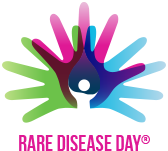Rare Disease Day 2019
Published on: 28 February 2019Lymphoma Action are pleased to support Rare Disease Day.

Lymphoma Action are pleased to support Rare Disease Day. The main objective of today is to raise awareness of rare diseases and their impact on the lives of people living with them.
Many people will have heard of ‘lymphoma’, which broadly is a type of blood cancer. It is often thought of as being one cancer, separated into two groups: the high-grade types (including most types of Hodgkin lymphoma) or the low-grade types.
In fact, lymphoma is an umbrella term that describes a large group of related, but different diseases. Today, the list of types of lymphoma in the World Health Organisation classification runs to over 60 different illnesses with different names. Although they can sound, on the face of it, fairly similar, these are distinct diseases and the subtype and the detail really matter.
To add to this complexity, there are some rare types of lymphoma that have features of more than one type of lymphoma, making them even more difficult to diagnose and classify.
For example, grey-zone lymphoma has features of both classical Hodgkin lymphoma and diffuse large B-cell lymphoma. Double-hit and triple-hit lymphoma have more than one major lymphoma-related genetic change in the lymphoma cells, with ‘double hit’ having two major changes and ‘triple hit’ having three major changes. High-grade B-cell lymphoma, not otherwise specified (NOS) has features of more than one type of lymphoma, such as Burkitt lymphoma and diffuse large B-cell lymphoma, and cannot be grouped to one single type of lymphoma.
The challenge for people with these rare types of lymphoma is that there is no standard treatment for them. Because these lymphomas are rare, it may take time to find out what treatment will work best. It can be difficult to find relevant information if your lymphoma does not fit into any of the more common types. You might find it helpful to read information on the type of lymphoma it most closely resembles. Ask your doctor for advice on what information is most relevant.
Read about Kat’s experience of double-hit lymphoma
Published 28 February 2019.
